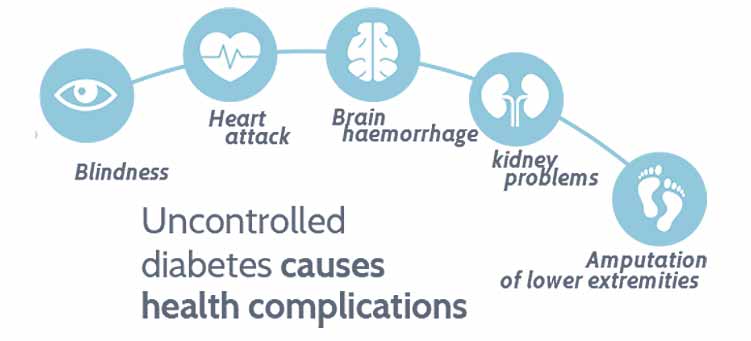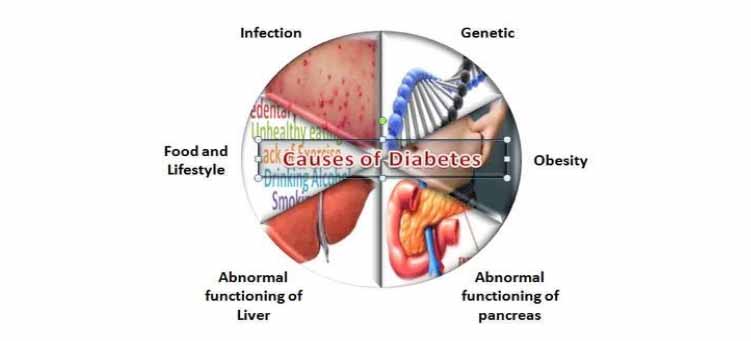With all the research on diabetes and advances in diabetes treatments, it’s tempting to think someone has surely found a diabetes cure by now. But the reality is that there is no cure for diabetes — neither type 1 diabetes nor type 2 diabetes. (Although lifestyle changes can achieve remission in type 2 diabetes in some cases.)
However, there are treatments, including simple things you can do daily, that make a big difference.
Is there a natural therapy that can cure diabetes?
No. Natural therapies such as deep abdominal breathing, progressive muscle relaxation, guided imagery, and biofeedback can help relieve stress. And emotional stress affects your blood sugar levels. So learning to relax is important in managing your diabetes.
Supplements don’t cure diabetes, either. Some natural supplements may interact dangerously with your diabetes medication. Others have been shown to help improve your diabetes, but always check with your doctor before taking any supplement.
Be skeptical about claims of a diabetes cure. A genuine cure will have been tested repeatedly in clinical trials with clear success.
What lifestyle changes can help me manage my diabetes?
Even though there’s no diabetes cure, diabetes can be treated and controlled, and some people may go into remission. To manage diabetes effectively, you need to do the following:
Manage your blood sugar levels. Know what to do to help keep them as near to normal as possible every day: Check your glucose levels frequently. Take your diabetes medicine regularly. And balance your food intake with medication, exercise, stress management, and good sleep habits.
Plan what you eat at each meal. Stick to your diabetes eating plan as often as possible.
Bring healthy snacks with you. You’ll be less likely to snack on empty calories.
Exercise regularly. Exercise helps you keep you fit, burns calories, and helps normalize your blood glucose levels.
Keep up with your medical appointments. That includes your doctor, diabetes educator, ophthalmologist, dentist, podiatrist, and other health care professionals.
Weight Loss Surgery
After weight loss surgery, many people with type 2 diabetes see their blood sugar levels return to near normal. Some experts call this a remission. It’s not unusual for people to no longer need diabetes medicines after weight loss surgery.
The more weight a person loses after surgery, the greater improvement in blood sugar control.
After surgery, if extra weight returns, your diabetes can return too.
Reaching and keeping a healthy weight are very important for managing diabetes. You should also follow your recommended diabetes diet, exercise regularly, manage your stress, and see your doctor regularly for necessary checkups.
Are stem cells a possible cure for diabetes?
They hold promise, but they’re not a treatment now.
Stem cells are cells that can develop into other types of cells. Scientists have had some success with stem cells in type 1 diabetes.
What about islet cell transplantation as a cure for diabetes?
A successful islet cell transplant can improve the quality of life for a person with diabetes. It’s an evolving technology that’s still being researched.
Islet cells sense blood sugar levels and make insulin. The cells come from a donor.
Once transplanted successfully, the donor cells begin to make and release insulin in response to blood sugar levels. This procedure can provide more flexibility with meal planning and help protect against serious long-term diabetes complications such as heart disease, stroke, kidney disease, and nerve and eye damage.
The person receiving the transplant must take medicine for the rest of their life to prevent their body from rejecting the donor’s cells.
How about pancreas transplantation?
Getting a transplanted pancreas is a possibility for some people with type 1 diabetes. It’s usually done in those who also have end-stage kidney (renal) disease.
A pancreatic transplant would help restore blood sugar control. Like anyone else who gets a transplant, the patient would need to take medicine for the rest of their life to help their body accept their new pancreas.
Source: webmd.com



